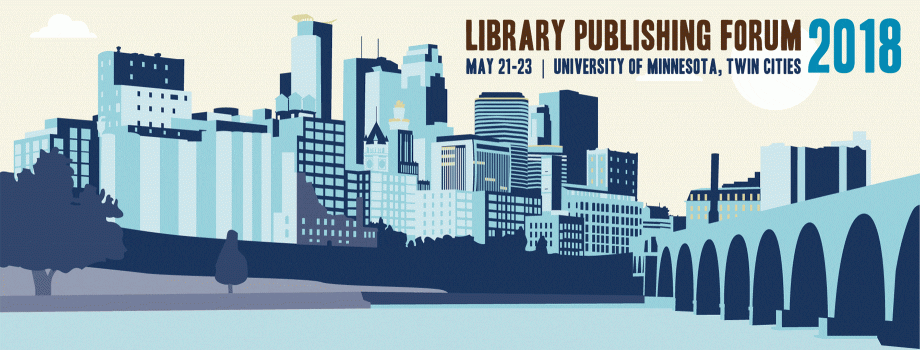April 11, 2018
Wednesday, May 23, 9:45-10:45am
Room: Ski-U-Mah Room
How we designed an open access & open source publishing workflow for research output of the Amsterdam University of Applied Sciences
Dylan Degeling, Amsterdam University of Applied Sciences
Description: From 2012 to 2015 the PublishingLab of the Amsterdam University of Applied Sciences (HvA) developed a research program to create a platform with new tools for open source-publishing that allow publishers in the art- and cultural sector to produce interactive e-publications by themselves.
One of these tools, The Sausage Machine, allows people to create a pdf, eBook, and web-publication from a simple manuscript. The results, including the manuscript, are deposited into the institutional repository and published the website. When any of the files or the template that is used for styling the publications is edited, the Sausage Machine automatically applies these changes to all the files that it has created in the past.
In 2016 the Library of the HvA and ThePublishingLab collaborated to develop a publishing workflow based on the Sausage Machine. The aim of this workflow was to allow researchers to more easily publish their manuscripts under an open access license, widen the reach of the publications by providing more than one file-format, and to create an alternative publishing route with the library at its centre instead of an external publisher.
This tool, being the hands of the library itself, makes it possible to continuously tweak it, add new features, and, through experience, automatise more and more of the publishing process. In 2017 this workflow was implemented and tested, allowing the HvA to come closer to its goal of going a 100% open access.
This panel presentation will be about: what we learned during the development process, what others can take away from it, the function of open source in the library of the HvA, and the publishing workflow itself.
An Open-Access Triple Triumph: Collaborating at Syracuse University Libraries
Amanda Page, Syracuse University Libraries
Description: In the summer 2017, Syracuse University Libraries took on an ad hoc publishing project, entitled Triple Triumph: Three Women in Medicine. What began as a simple faculty question on copyright blossomed into a full-fledged library publishing project. Selected for Syracuse Unbound—a nascent open-access imprint of Syracuse University Libraries and Syracuse University Press—it was produced as a multiple-format, accessible, and openly licensed book in an effort to share the true story of three female physicians as widely as possible. In this case study, we will discuss how Triple Triumph came to be published, and share internal workflows and project management patterns from beginning to current state. You will be walked through the rights, preservation, accessibility, and technology infrastructures, as well as project considerations and collaborations. The end of the discussion will be on the selection process: why this story was chosen for Syracuse Unbound, the value of the work, and inclusion of data points and the publication’s impact.
New Directions in Open Scholarship: From Journals to Monographs – a Use Case
Rosarie Coughlan, Queen’s University
Description: Since 2002, Queen’s University Library has maintained a Journal Hosting Services supporting a vibrant community of faculty and student journal and conference publications. Supporting an ongoing culture of ‘openness’ across the research and scholarly ecosystem that seeks to facilitate and promote easy and barrier-free dissemination to the widest possible audience for the advancement of research and the benefit of society, we are now expanding our publishing support portfolio to include the hosting of open monographs.
This practical presentation will explore a pilot initiative (currently being rolled out) to establish a new open monograph hosting service at Queen’s, including:
• Lessons in project management: a lived experience
• Building a new service: balancing the needs and wants of authors, editors, readers and the Library
• Open Monographs Press as a platform for publishing open Monographs – perspectives from the editor and the Library
• Developing an outreach program to attract new publishers on campus
• Successes and lessons learned for the future
• What’s in a service level agreement
• Ideas for the future
